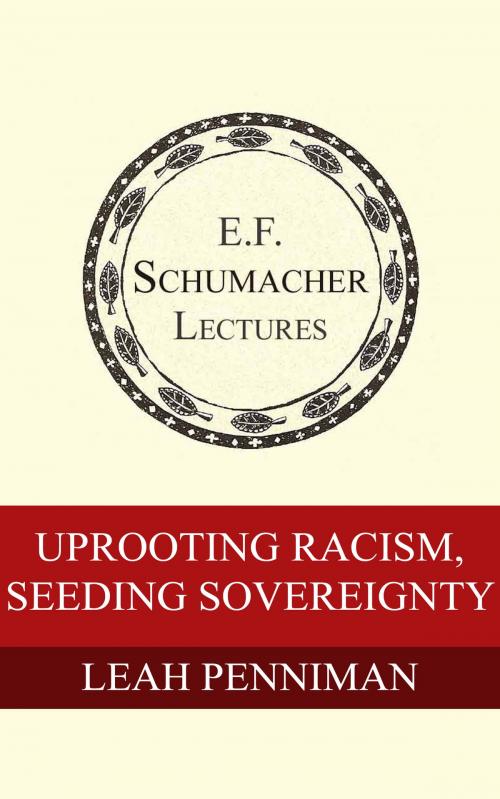Uprooting Racism, Seeding Sovereignty
Nonfiction, Science & Nature, Technology, Agriculture & Animal Husbandry, Social & Cultural Studies, Social Science, Discrimination & Race Relations| Author: | Leah Penniman, Hildegarde Hannum | ISBN: | 1230003233238 |
| Publisher: | Schumacher Center for a New Economics | Publication: | May 16, 2019 |
| Imprint: | Language: | English |
| Author: | Leah Penniman, Hildegarde Hannum |
| ISBN: | 1230003233238 |
| Publisher: | Schumacher Center for a New Economics |
| Publication: | May 16, 2019 |
| Imprint: | |
| Language: | English |
The collection of lectures and publications from the Schumacher Center for a New Economics represents some of the foremost voices on a new economics.
Leah Penniman tells us a story about race and the food system and how we can decolonize and re-indigenize our relationship to land and to food. She reminds us that the land we stand upon is stolen land and that the food system was built upon it with stolen labor. Today, the Black farming movement still faces racism and discrimination, but in spite of that, she says, “we’re trying to reclaim that inherent connection, that right to belong to the earth and to have agency in the food system.” In order to move toward Black agrarianism and toward new economies for Black and Brown people, repatriation and reparations need to take place. Penniman adds that we need to think seriously about our relationship to the earth, because we have the knowledge and means of indigenous and ancestral methods that can feed the planet without destroying it. She uses examples from Soul Fire Farm, which she co-founded in 2011, to show how it is helping to put an end to racism and injustice in the food system.
The collection of lectures and publications from the Schumacher Center for a New Economics represents some of the foremost voices on a new economics.
Leah Penniman tells us a story about race and the food system and how we can decolonize and re-indigenize our relationship to land and to food. She reminds us that the land we stand upon is stolen land and that the food system was built upon it with stolen labor. Today, the Black farming movement still faces racism and discrimination, but in spite of that, she says, “we’re trying to reclaim that inherent connection, that right to belong to the earth and to have agency in the food system.” In order to move toward Black agrarianism and toward new economies for Black and Brown people, repatriation and reparations need to take place. Penniman adds that we need to think seriously about our relationship to the earth, because we have the knowledge and means of indigenous and ancestral methods that can feed the planet without destroying it. She uses examples from Soul Fire Farm, which she co-founded in 2011, to show how it is helping to put an end to racism and injustice in the food system.















